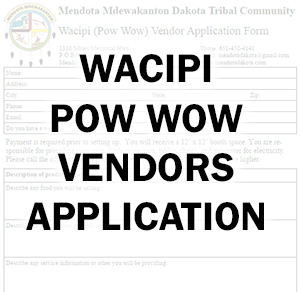| Editorial: Righting the wrongs of history Pardon urged for Dakota Indian wrongly executed in 1862. Star Tribune
During the late 1800s and early 1900s, thousands of African-Americans, primarily living in southern U.S. states, were lynched by mobs blinded by racial hatred and little sense of fairness or evidence of criminal wrongdoing.
Even so, the country’s largest mass hangings didn’t happen in the Jim Crow south, but on Minnesota soil, in Mankato, under the directive of President Abraham Lincoln. Thirty-eight Dakota Indians were executed in 1862 on the day after Christmas.
With the 150th anniversary of the execution approaching in 2012, there’s talk of a federal pardon for one of the dead, We-Chank-Wash-ta-don-pee, also known as Chaska. Lincoln didn’t order his execution but, in fact, commuted his sentence.
A pardon, even all these years later, deserves support.
U.S. Sen. Al Franken, D-Minn., who sits on Indian Affairs Committee, has said he may push for the pardon. Rep. Jim Oberstar, D-Minn., who’s leaving the U.S. House after a long career, supports the move, calling it a “grand gesture” and “a wrong that should be righted.”
The backdrop for the executions was the Dakota War of 1862, a horrific event for Native Americans and for Minnesota settlers. Starving and living in desperate conditions because the government failed to deliver promised food and supplies, the Indians attacked.
Many Dakota Indians didn’t participate in the killings, “choosing to aid and protect settlers instead,” according to the Minnesota Historical Society website. The site also notes that “for many years the Indian side of the story was ignored.”
Still, about 500 settlers were killed, and military tribunals called for the execution of 303 Indians. Lincoln intervened because it appeared to him the tribunals were rushing to judgment on scant evidence.
The president, an attorney, studied the files himself and, in the end, commuted 265 of the sentences, including Chaska’s. Historians debate whether Chaska was killed intentionally by the military, or whether his death was a case of mistaken identity.
Some say Chaska prevented one female settler and her children from being abused or killed after being captured by members of his tribe. A few speculate that Chaska was killed because white men suspected he and the settler were having an affair — a charge used repeatedly to justify vigilante lynching.
After the war, hundreds of Dakota were held in camps near Fort Snelling, under less-than-humane conditions, before being forced out of the state. Those spared by Lincoln were imprisoned, and many were never freed.
Last year, Gov. Tim Pawlenty signed a resolution asking Congress to repeal the 1863 banishment of Dakota bands — a measure that had passed unanimously in the Minnesota Legislature. Now, a move is afoot to clear Chaska’s name.
Pardons are sometimes given for political reasons or other, less than noble motives. Historians say President Andrew Johnson may have succumed to pressure in pardoning Dr. Samuel Mudd, convicted of aiding in Lincoln’s assassination. That pardon was affirmed by President Jimmy Carter after years of lobbying by Mudd’s relatives.
When President Richard Nixon resigned in the wake of the Watergate scandal, his successor, Gerald Ford, issued what may be the nation’s most famous pardon, absolving Nixon of any crimes that he may have committed while in office. Ford argued the pardon was necessary for America’s sake.
Why does Chaska’s case matter today? Because the wounds and resentment still run deep, and Chaska’s guilt was never certain. Native Americans were driven out of their land and have never recovered from being displaced. The impact of this horror has been felt for generations.
|
http://www.startribune.com/opinion/editorials/112103014.html









